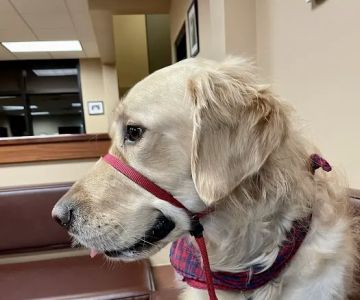Can You Get Into Veterinary School Without a Biology Degree?
When I first thought about pursuing a career in veterinary medicine, I had the common question: "Do I really need a biology degree to get into veterinary school?" It seemed like the only way to prepare for a future in vet med was through a biology or animal science degree, but I was about to discover that the path isn’t always that simple. Whether you're a non-traditional student or just exploring alternative paths, understanding how to get into veterinary school without a biology degree can be key in making your dream a reality.
1. Understanding Veterinary School Requirements
To answer the big question: Yes, it is possible to get into veterinary school without a biology degree, though the journey might require a bit more effort and strategic planning. Veterinary schools typically have a set of prerequisites that students must complete before applying, and while a degree in biology or animal science is common, it is not always mandatory. What matters most is completing the required coursework and gaining hands-on experience in the veterinary field.
1.1 Common Prerequisite Courses
The specific prerequisites for veterinary school can vary from one institution to another, but in general, you will need to complete courses in areas such as:
- Biology
- Chemistry (General and Organic)
- Physics
- Mathematics
- Animal Science or Zoology
Even if you do not have a biology degree, completing these courses at your college or through community college classes could be a great option. Many non-biology majors take these classes as part of their preparation for veterinary school.
2. What to Do If You Don’t Have a Biology Degree
One of the challenges I faced in my journey was figuring out how to show veterinary schools that I was adequately prepared for the academic demands of the program. As a non-biology major, I focused on gaining the essential knowledge by enrolling in required science courses and getting practical experience. Here are some practical steps that helped me and many others:
2.1 Take Additional Science Classes
If you have a background in another field, like business, literature, or even engineering, you can still fulfill the necessary science requirements by enrolling in courses designed for veterinary school applicants. Many schools offer post-baccalaureate programs or even online courses that cover the subjects you need. For example, I took courses in microbiology, biochemistry, and zoology at a local university to fill in the gaps in my knowledge. Not only did this help me meet the prerequisites, but it also provided the academic foundation I needed to perform well in veterinary school once accepted.
2.2 Gain Experience in Veterinary Clinics or Animal Care
While the coursework is important, nothing beats hands-on experience when it comes to demonstrating your commitment to veterinary medicine. I spent several years working as an animal care assistant at a local animal shelter and volunteered at veterinary clinics. This experience proved invaluable when I applied to veterinary school, as many institutions place a heavy emphasis on animal care experience. Additionally, the relationships I built with veterinarians allowed me to gain mentorship and recommendations that supported my application.
2.3 Consider a Master's Degree in a Related Field
For those who may not have the science background but are determined to enter veterinary school, pursuing a master's degree in a related field, such as animal science, public health, or environmental biology, can be a strategic option. I know a few individuals who opted for this route to build a stronger academic profile. A master's degree not only provides additional scientific knowledge but also shows veterinary schools your dedication and ability to succeed in challenging coursework.
3. Addressing Your Lack of a Biology Degree in Your Application
When I applied to veterinary school, I knew my background wasn’t the traditional path, and I worried about how to present myself. What helped was being open and honest in my personal statement about my journey and how my experiences outside of biology had prepared me to succeed in veterinary school. Admissions committees understand that students come from various backgrounds and are generally more interested in your passion for the field and your ability to perform academically.
3.1 Craft a Compelling Personal Statement
Your personal statement is an opportunity to explain why you want to become a veterinarian, why you chose this path despite not having a biology degree, and what makes you a unique candidate. I highlighted my work with animals, including my volunteer efforts, and discussed the transferable skills I brought from my non-biology major, such as problem-solving, communication, and project management. This not only set me apart but showed that my experiences had enriched my perspective on animal care.
3.2 Get Strong Letters of Recommendation
Strong letters of recommendation are crucial, especially when you’re coming from a non-traditional background. I made sure to get recommendations from veterinarians I had worked with, as well as professors from my science classes. Their letters spoke to my ability to thrive in a rigorous academic environment and my genuine passion for veterinary medicine. The right recommendations can really boost your chances of acceptance.
4. The Timeline for Applying to Veterinary School Without a Biology Degree
If you don’t have a biology degree, it’s important to give yourself extra time to complete the necessary coursework and gain experience. I suggest planning for at least two years of preparation before applying, especially if you need to take prerequisite courses. This timeline gives you enough time to excel in your science classes, gain hands-on experience, and build a competitive application. Some people take even longer, but being patient and thorough in your preparation pays off in the long run.
5. Conclusion: Pursuing Your Dream of Becoming a Veterinarian
In the end, having a biology degree is not the only way to get into veterinary school. While it can make things easier, I’ve learned through my own experience that hard work, determination, and a clear commitment to the veterinary profession can make up for a non-traditional background. If you’re passionate about becoming a veterinarian, don’t be discouraged by the path you’ve chosen. Instead, focus on gaining the necessary skills, gaining experience, and demonstrating your love for animals. Veterinary schools value diverse applicants with unique perspectives, so your journey could very well be the one they’re looking for.











